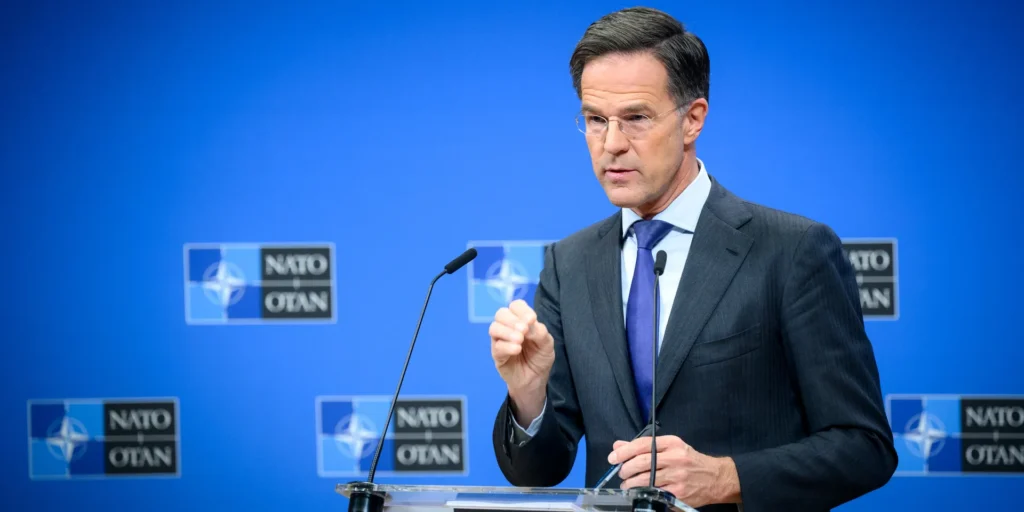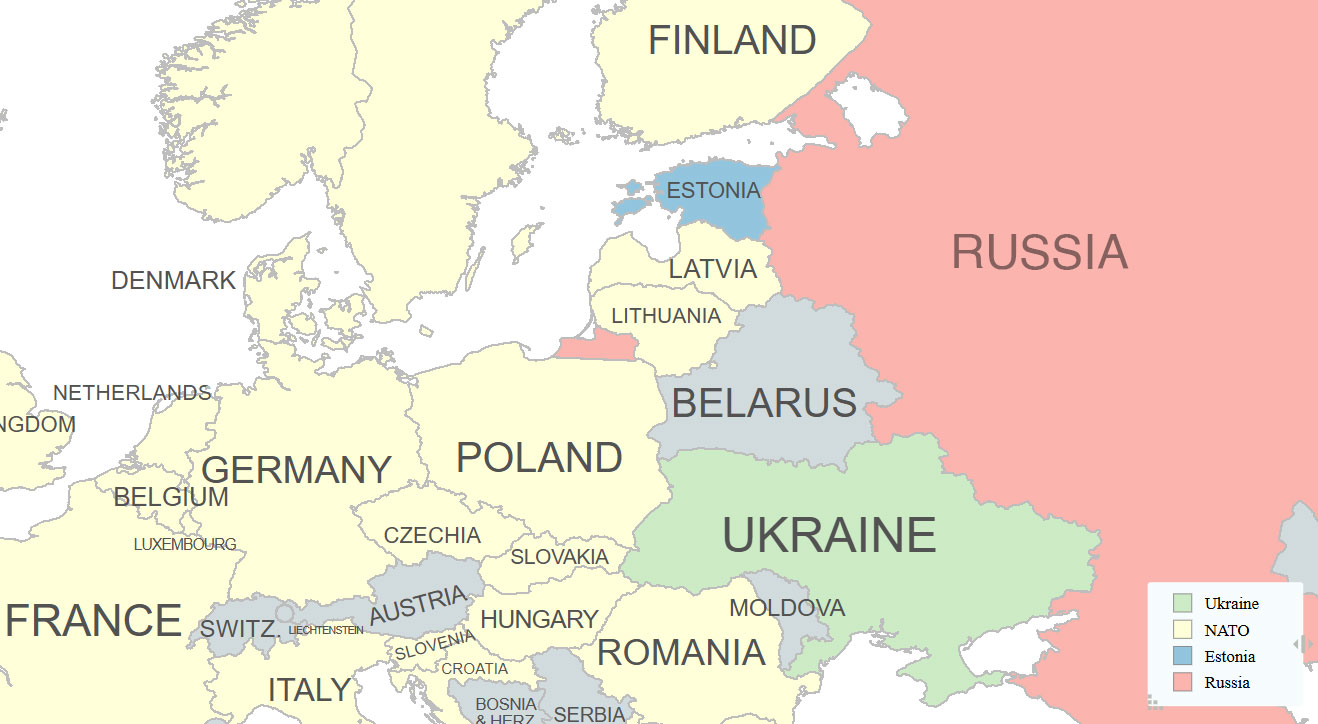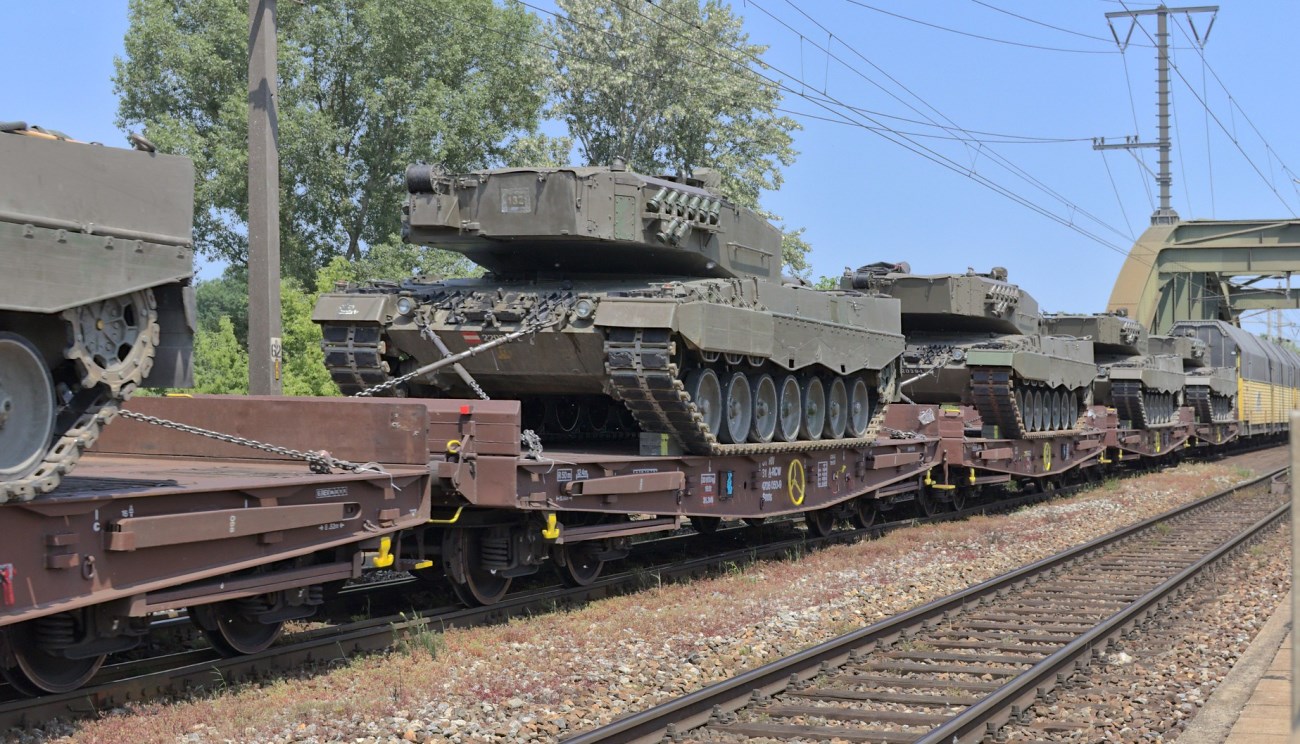Russia may invade Estonia in “five or seven years,” NATO chief Rutte says

If NATO fails to boost its deterrent capabilities, Russia may invade Estonia within 5-7 years, NATO Secretary General Mark Rutte said in a 5 July 2025 interview with The New York Times. The NATO chief warned that despite no immediate danger, the Kremlin might strike in the future unless the alliance accelerates defense investment and coordination.
Russia’s military buildup fuels concern
In the NYT interview, Rutte cited Russia’s rapid rearmament as a central concern, noting that “Russia is reconstituting itself at a pace and a speed which is unparalleled in recent history.” According to him, Moscow now produces three times more ammunition in three months than all of NATO does in a year. He said this buildup, supported by cooperation with North Korea, Iran, and China, threatens not only Ukraine but also broader European security.
Baltic states in focus after Estonia drill
His comments followed a New Yorker article describing NATO training exercises in Estonia, which revealed that Estonian forces lacked critical defense capabilities such as air power and naval strength. Rutte acknowledged the findings but insisted Estonia would not face an invasion today because “our reaction will be devastating.” However, he warned that without significant increases in defense investment, that calculus might change within years.
Washington remains committed to NATO Article 5, Rutte believes
Rutte emphasized that the United States would fully support Estonia if attacked. “One hundred percent,” he said, adding that his discussions with the Trump administration confirmed total US commitment to NATO and Article 5. He dismissed the notion that America is retreating from Europe, instead arguing that Washington expects Europeans to shoulder more of the burden while shifting focus toward the Indo-Pacific.

Deterrence and readiness depend on industry and manpower
Rutte highlighted a growing concern about Europe’s defense industry and personnel shortages. “We simply lack the defense industrial base to produce the weapons we need,” he said, stressing that funding must translate into operational capability. He refrained from prescribing conscription but suggested higher salaries and national decisions could address the manpower gap.
Although questions remain about democratic cohesion within NATO, Rutte avoided commenting on the internal politics of member states like Türkiye, the US under Trump, or pro-Russian Hungary. Instead, he insisted that NATO remains “stronger and more united than ever in recent history.”
Looking ahead: Investment or vulnerability
Rutte warned that if NATO fails to follow through on its commitments, countries like Estonia could face existential threats in the near future.
“If we don’t [invest], we’ll have to learn Russian,” he said.
For now, he remains confident that NATO’s deterrence, especially with US backing, is strong—but the clock is ticking.
Read also
-
Ukraine leads NATO into future of combat medicine
-
Ukraine quietly won the NATO summit where everyone was waiting for drama
-
At NATO summit allies flattered Trump and quietly built defense shield across Europe and Ukraine
-
Putin overstretched: Russia withdraws forces from Kaliningrad, Poland says
-
FT opinion: Russia may last a year. Ukraine risks collapse within half a year without urgent aid

